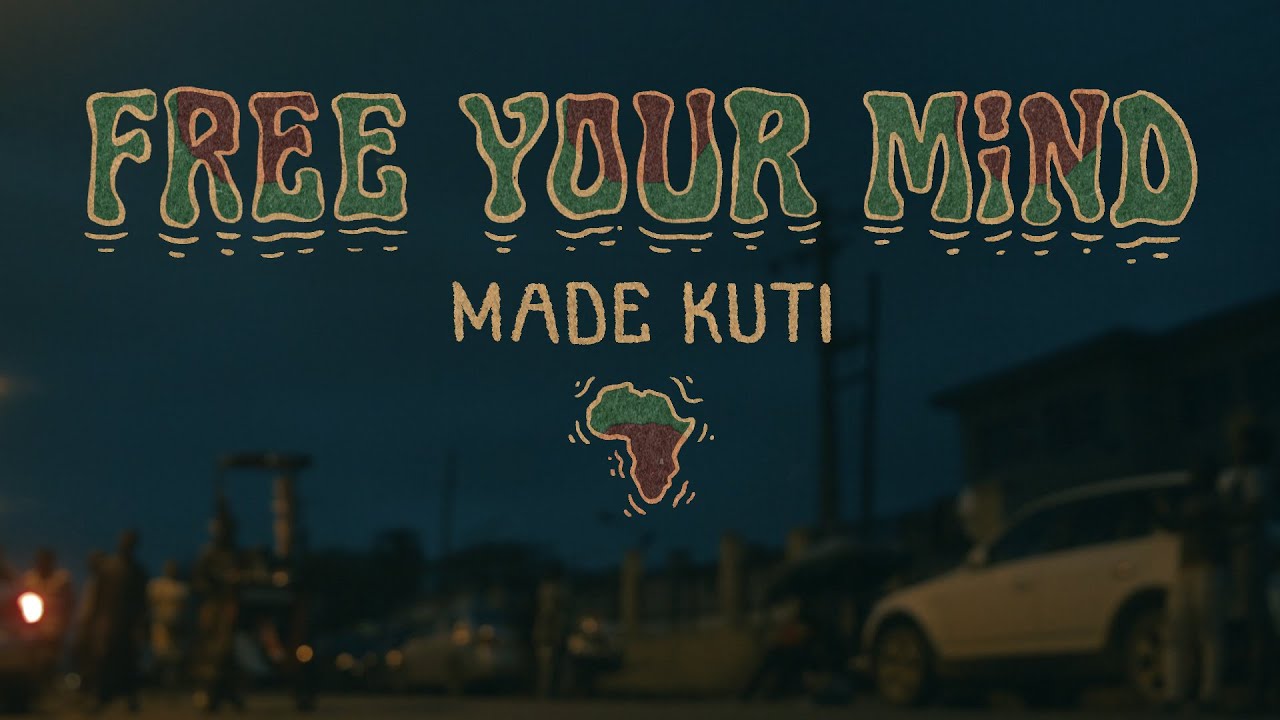In For(e)ward Made Kuti takes a time-out to tell the audience “how scary it is” that Nigerians are “facing the same problems from the 70s.” Over three decades later, the crucible of social and political injustice that forged Fela Kuti into a hurricane of political activism and boundless creativity is still very much real. It’s through his example that the Kuti family have long-realised that the most efficient way to bring political issues to popular consciousness is through art, and more specially, music.
Fela set a precedent In the way he challenged scripted political rhetoric with the organic, unrestrained and impromptu nature of his music and performance. While his psychedelic sax compositions ebbed and flowed and seemingly had a life of their own, his lyrics offered the counterpoint of being personal, direct, and laced with urgency. The combination of rhythmic freedom and satirical political commentary were the two strands of the helix that formed the DNA of afrobeat. It’s apt then that his son, Femi, and his grandson, Made, have released Legacy + a double LP where they attempt to carry on Fela’s political-musical legacy.
In Stop the Hate you can tell Femi Kuti has had enough. Like his father, Femi does not mince his words. The importance of highlighting the issue of political corruption is simply too important to distort through any kind of poetical language. Yet in Femi’s rush to express the gravity of the situation he has stalled the natural afrobeat momentum and left the precarious balance of the political and the musical slightly lopsided. While the message dominates the music, it is a more inclusive message this time round. With the addition of more universal statements Femi opens up the floor to a wider demographic, highlighting the fact that issues of corruption are by no means restricted to the African continent.
Made Kuti’s For(e)ward does a better job at synergising the form and content of the music, but there are still moments when political exposition clashes with the flow of the music. In terms of the music itself, Made offers a more modern and fresh take on the afrobeat sound with the inclusion of more creative synth work and composition. The beginning of the first track, ‘Free Your Mind’, for example, doesn’t launch into staid trumpet routines but smoothly pushes off with a jumpy riff and mantra-like vocal loop. If Stop the Hate is more bold and confrontational; For(e)word. is more philosophical and reflective. Either way, it feels bad to critique African musical royalty, especially considering the important message’s the records express. Yet for a veteran appreciator of Fela Kuti, the records can sometimes feel like an afrobeat album adapted for a western palette.
The issue for both Femi and Made’s records, is that they feel too conscious of both their modern international audience, and their own political weight. It feels like there is too much scaffolding and careful consideration around the tracks, and as a result, the spontaneity and freeform funkiness of afrobeat gets diluted. As opposed to Fela, who left the audience eagerly waiting his words (so when they finally came you really opened your ears and paid attention), the instrumental sections for both records are simply not given enough time to breathe and build anticipation. This is not a reflection of the Kutis as musicians, for a debut Made has done a great job with For(e)ward, and you only have to listen to Femi’s stellar 1995 self-titled LP and 1998’s incredible Shoki Shoki to see what he is capable of. The dilution of the vibes is simply a byproduct of catering for a modern western audience with limited attention spans. They attempt to condense the electricity of afrobeat for kids unable to sit still through eight minutes of purely instrumental afro jazz and as a result it feels like afrobeat lite.
During his lifetime Fela Kuti gave his bare arm to the world and let them feel the pulse of Africa, the pulse of a new self-determined continent attempting to exorcise the ghosts of its colonial past. His son and grandson have channelled that pan-African idealism in the form of their new double LP Legacy +, and while they do not possess the vitality of the patriarch, it’s clear to see that the pulse of Africa still beats rigorously in Kuti veins.



